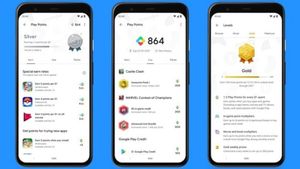JAKARTA – On Tuesday, November 9, a new chapter was added to the ongoing Apple vs. Epic feud, when US district judge Yvonne Gonzalez Rogers ruled that the iPhone maker must comply with previous court orders and allow developers to offer third-party payment options at their application.
The decision comes after Rogers' earlier assessment in September when he ruled that Apple should allow developers to link to alternative payment methods unrelated to the App Store.
The decision, however, was seen as a win for Apple, with the judge ruling in its favor on nine out of ten counts. As part of the assessment, Rogers said that Epic should pay Apple $12 million to compensate for lost revenue from Apple because Epic was processing direct payments in 2019. After the decision, Epic said it plans to appeal the decision.
In his final order, Judge Rogers dismissed Apple's appeal to keep the status quo for the existing App Store payment structure after December. While Apple pleaded for more time to implement technology that would allow third-party developers to process their own payments, the judge ruled out the fact that Apple asked to delay the changes by up to five years.
According to him, the company only needed a limited amount of time to set guidelines for change, which shouldn't take that long. Calling Apple's motion "fundamentally flawed," he said the company had provided "no credible reason" for the court to postpone the date beyond December 9.
On its part, Apple went to great lengths to convince Judge Rogers that it really took years to implement the mandated changes. Arguing for the tech giant, attorney Mark Perry claims that it will be difficult to do so in a few weeks.
SEE ALSO:
According to him, the process is "very complicated" and requires "protectors and guidelines to protect children, to protect developers, to protect consumers, to protect Apple." According to The Verge, Epic's attorney Gary Bornstein described the appeal as a delaying tactic and said the company should be forced by the courts to rectify its course if things were to change for the better.
It's worth noting that the latest ruling doesn't mean app developers don't have to pay the controversial App Store fees, even if they bypass the App Store payment methods. However, it is likely to have wider implications in the gaming industry in the months and years to come.
Apple currently makes more money from video games than Sony, Nintendo, Microsoft, and Activision Blizzard combined. It will certainly be interesting to see if that changes in the near future. However, it remains to be seen how the revised App Store payment structure looks like and what it means for third-party app developers going forward.
The English, Chinese, Japanese, Arabic, and French versions are automatically generated by the AI. So there may still be inaccuracies in translating, please always see Indonesian as our main language. (system supported by DigitalSiber.id)

















